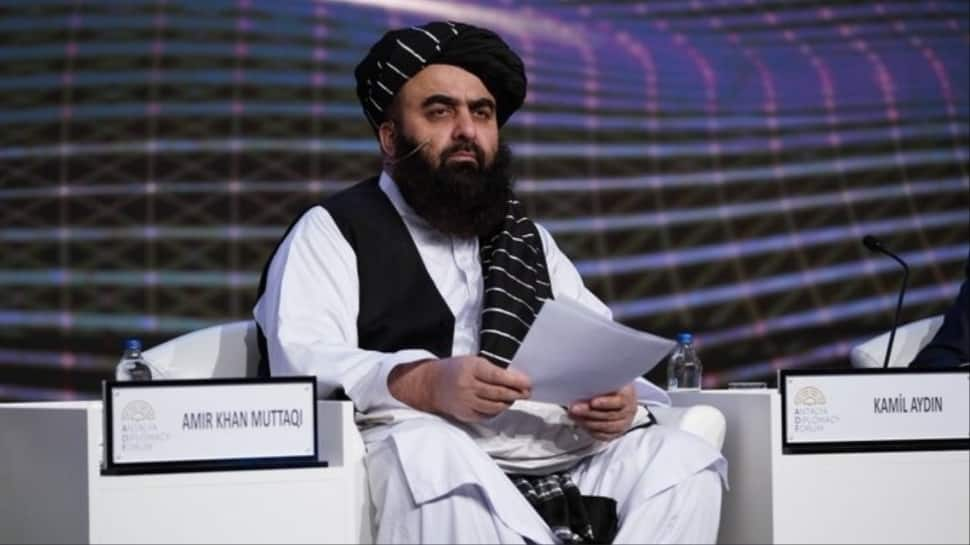Politics
Taliban Foreign Minister Amir Khan Muttaqi to Visit India on October 9

Afghan Foreign Minister Amir Khan Muttaqi is set to visit India on October 9, 2023, marking the first high-level delegation from the Taliban government to New Delhi since the group took control of Afghanistan in August 2021. This visit is anticipated to reshape diplomatic relations between India and the Taliban, reflecting a shift in regional geopolitics.
The United Nations Security Council has granted a temporary exemption from international travel restrictions for Muttaqi, allowing him to engage in discussions in New Delhi from October 9 to 16. This exemption underscores the significance of the meeting for both the Taliban and regional stakeholders aiming to recalibrate diplomatic ties.
Preparations for the visit have been ongoing for several months. Indian officials, including Foreign Secretary Vikram Misri and Indian Foreign Service officer J.P. Singh, have held multiple discussions with Taliban representatives in neutral venues such as Dubai. Notably, Foreign Secretary Misri met with Muttaqi in Dubai to discuss India’s humanitarian assistance to Afghanistan, focusing on enhancing the health sector and supporting refugee rehabilitation.
In a pivotal development on May 15, External Affairs Minister S. Jaishankar held a telephone conversation with Muttaqi, the first ministerial-level contact since the Taliban’s takeover. Jaishankar commended the Taliban for condemning the recent terror attack in Pahalgam, reaffirming India’s “traditional friendship with the Afghan people.” This exchange highlighted a shared concern over terrorism in the region, particularly Pakistan-sponsored acts.
In recent months, India has expanded its humanitarian aid to Afghanistan, supplying essential goods such as food grains, medical supplies, and development assistance. Following a devastating earthquake in September, India was among the first nations to respond, sending 1,000 family tents and 15 tonnes of food to the most affected areas, followed by an additional 21 tonnes of relief materials, including essential medicines and hygiene kits. Since the Taliban’s takeover, India has provided nearly 50,000 tonnes of wheat, over 330 tonnes of medicines and vaccines, and significant quantities of pesticides, demonstrating its commitment to assisting the Afghan population in times of crisis.
This visit is perceived as a setback for Pakistan, which has historically sought to maintain influence over Kabul. Islamabad’s recent decision to repatriate over 80,000 Afghan refugees earlier this year has strained relations with the Taliban, creating an opportunity for India to enhance its role in the region. Analysts suggest that Muttaqi’s trip signals Kabul’s intent to diversify its foreign relations and reduce its reliance on Pakistan.
For India, this engagement with the Taliban government is a strategic yet sensitive move. It aims to protect India’s long-term interests in Afghanistan, mitigate potential security threats, and counterbalance the influence of both China and Pakistan in the region. The bilateral meeting scheduled for October 10 during Muttaqi’s visit could serve as a watershed moment, potentially steering India and Afghanistan toward a new phase of cautious cooperation that may reshape the power dynamics across South Asia.
-

 World5 months ago
World5 months agoSBI Announces QIP Floor Price at ₹811.05 Per Share
-

 Lifestyle5 months ago
Lifestyle5 months agoCept Unveils ₹3.1 Crore Urban Mobility Plan for Sustainable Growth
-

 Science4 months ago
Science4 months agoNew Blood Group Discovered in South Indian Woman at Rotary Centre
-

 World5 months ago
World5 months agoTorrential Rains Cause Flash Flooding in New York and New Jersey
-

 Top Stories5 months ago
Top Stories5 months agoKonkani Cultural Organisation to Host Pearl Jubilee in Abu Dhabi
-

 Sports4 months ago
Sports4 months agoBroad Advocates for Bowling Change Ahead of Final Test Against India
-

 Science5 months ago
Science5 months agoNothing Headphone 1 Review: A Bold Contender in Audio Design
-

 Top Stories5 months ago
Top Stories5 months agoAir India Crash Investigation Highlights Boeing Fuel Switch Concerns
-

 Business5 months ago
Business5 months agoIndian Stock Market Rebounds: Sensex and Nifty Rise After Four-Day Decline
-

 Sports4 months ago
Sports4 months agoCristian Totti Retires at 19: Pressure of Fame Takes Toll
-

 Politics5 months ago
Politics5 months agoAbandoned Doberman Finds New Home After Journey to Prague
-

 Top Stories5 months ago
Top Stories5 months agoPatna Bank Manager Abhishek Varun Found Dead in Well









